Classical CDs: Music for Easter, vocal anthologies and a trip to Dundalk | reviews, news & interviews
Classical CDs: Music for Easter, vocal anthologies and a trip to Dundalk
Classical CDs: Music for Easter, vocal anthologies and a trip to Dundalk
Seasonal choral music, two contemporary chamber discs and two vocalists showcased
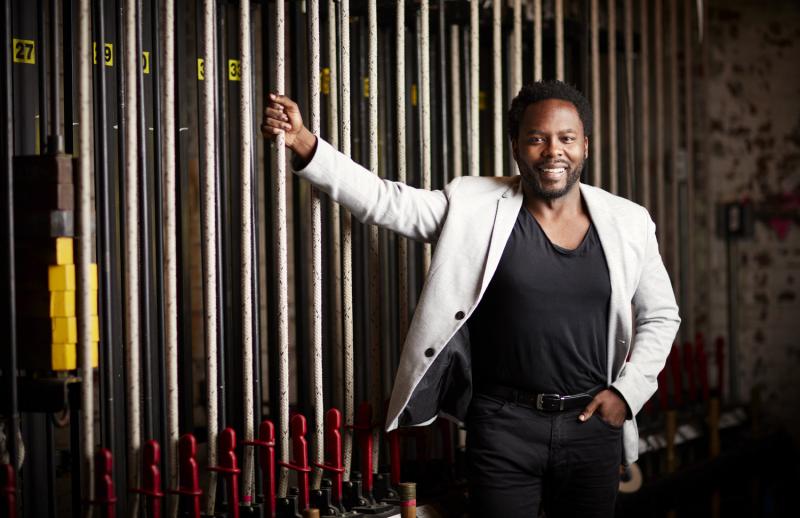
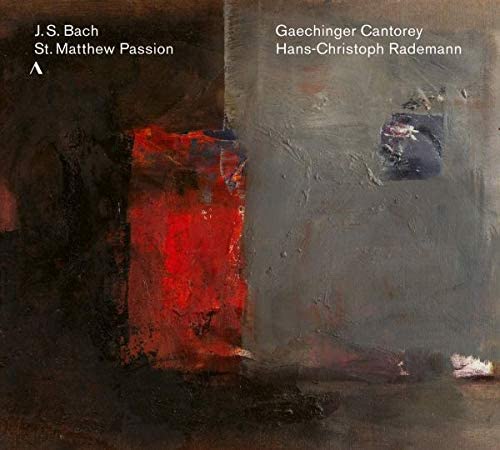 Bach: St Matthew Passion Gaechinger Cantorey/Hans-Christoph Rademann (Accentus)
Bach: St Matthew Passion Gaechinger Cantorey/Hans-Christoph Rademann (Accentus)
Your shelves may already be overburdened with recordings of Bach’s St Matthew Passion, but make a small space for this one. Recorded in November 2020 under lockdown conditions, it has everything going for it: excellent soloists, crisp orchestral playing and immaculate choral singing. The restrictions must have given the sessions an extra sizzle, conductor Hans-Christoph Rademann explaining in the booklet that the process was “extremely difficult… every musician has to act more like soloists and yet be part of a whole.” A photo taken during the sessions in Ludwigsberg shows singers and players just managing to squeeze onto the stage whilst maintaining social distance, the sound as captured by Accentus’s production team transparent but all-enveloping. I’m an old-school speakers and amplifier man at heart, but these discs do sound wonderful through headphones.
Rademann’s unfussy direction is a model of its kind; there are so many marvellous moments. “Blute nur, du liebes Herz!” is exquisitely sung by soprano Isabel Schicketanz, and Patrick Grahl’s Evangelist is sweet-toned but authoritative in his recitatives. Rademann’s refusal to linger gives numbers like “Erbarme dich” an unsentimental urgency and punch. And those burbling oboes in “Sehet, Jesus hat die Hand” are gorgeous, the perfect match for Maria Henriette Reinhold’s solo line. It’s all marvellous, and something you’ll be listening to all year round.
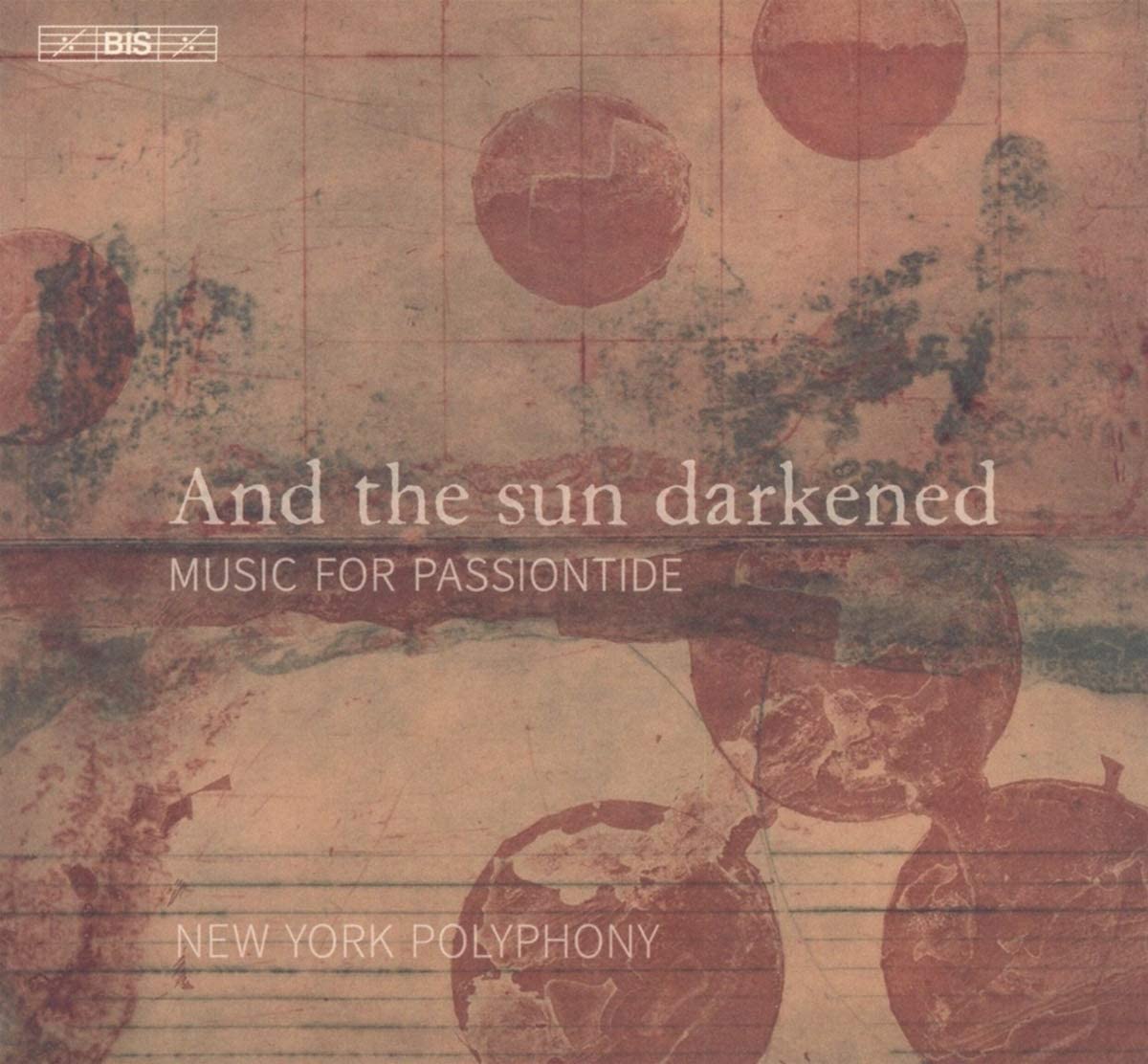 And the sun darkened – Music for Passiontide New York Polyphony (BIS)
And the sun darkened – Music for Passiontide New York Polyphony (BIS)
New York Polyphony’s latest BIS disc spans more than 500 years, ably demonstrating the quartet’s versatility. Potentially austere items, like a motet by the Franco-Flemish renaissance composer Loyset Compère, have a rare warmth and immediacy, belying their 15th century origins. And Josuin’s “Tu pauperum refugium” is quietly ecstatic, the singers breathing as one. The voices blend so well, capped by counter-tenor Geoffrey Williams. Andrew Smith’s Salme 55 dates from 2011, derived from incidental music composed for a theatre piece about Gesualdo, Smith’s material sounding both thrillingly contemporary and archaic. As does Cyrillus Kreek’s setting of Psalm 22, composed, incredibly, as long ago as 1914, Kreek’s inventive harmonic language a continual delight.
The longest work here is the Officium de Cruce by Compère, a cycle of nine motets tracing the Passion narrative. Listen with the texts and you’re amazed at how neatly each section mirrors the action, from the crowd’s cries of “Crucify him” to the grave beauty of the music depicting Christ’s death. Flawlessly sung, and superbly engineered to boot. Again, a disc for the whole year, not just Easter.
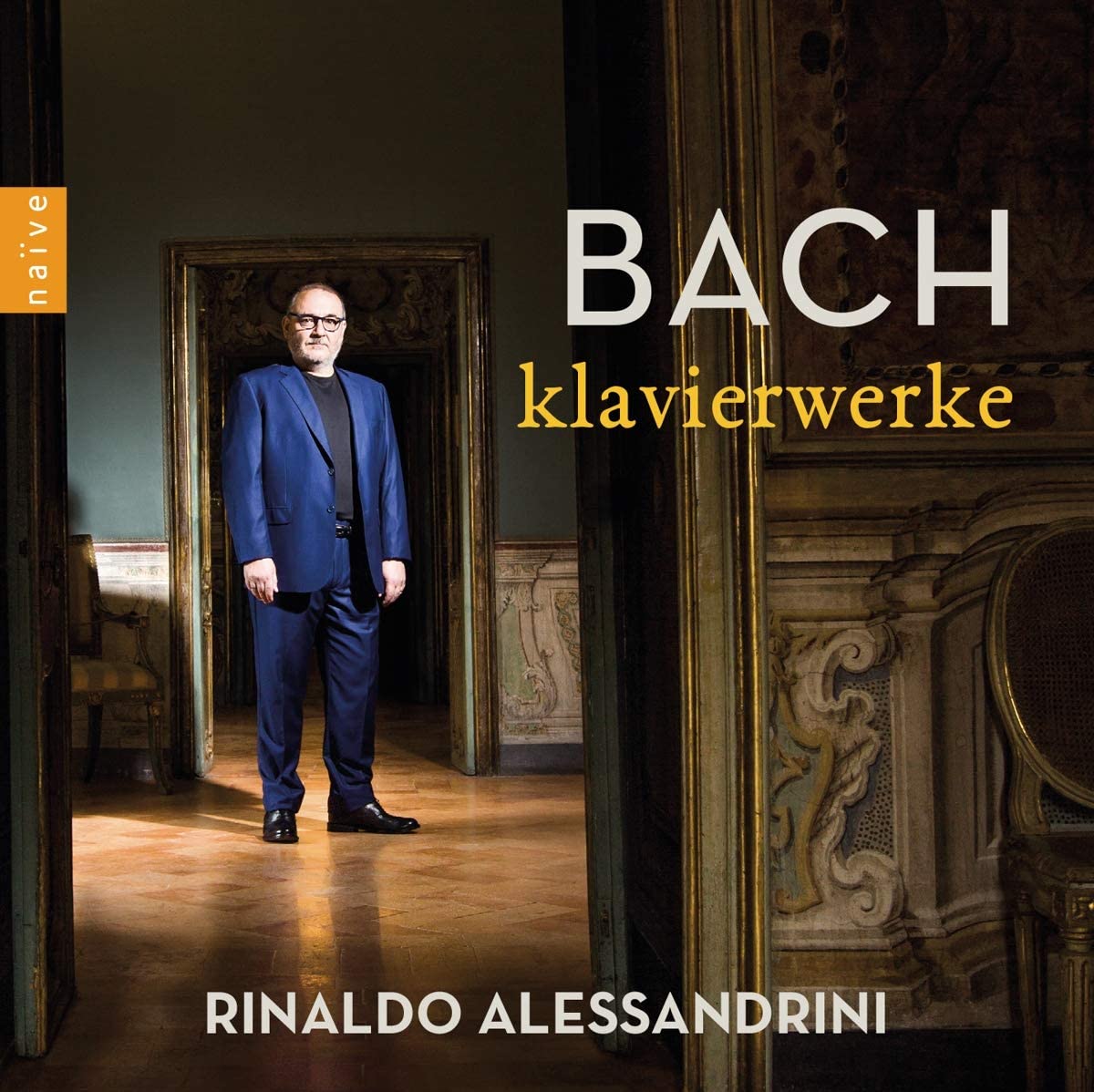 Bach: Klavierwerke Rinaldo Alessandrini (Naïve)
Bach: Klavierwerke Rinaldo Alessandrini (Naïve)
More Bach on harpsichord. Wahey! Though not a complete set of English Suites, or Partitas, or Goldbergs, but a bold attempt to give a sense of the range of Bach’s keyboard output in three helpings, each one with its constituent elements in the same key. Rinaldo Alessandrini starts in A minor, then moves to D minor before a C minor close. That’s a lot of minor key writing, but this collection is anything but dour, and having the three sequences identically organised (prelude-invention, sinfonia, a pair of preludes and fugues) allows us to compare each key’s distinct atmosphere. A minor feels bright and brittle, D minor sombre, and C minor rich and solemn. That was how I responded, anyway. A continual delight is the care and attention which Alessandrini lavishes on the smallest of pieces, a work like the tiny BWV 90 D minor prelude packing a disproportionate punch.
That the harpsichord sound is so colourful is another bonus, Alessandrini playing a 1984 copy of an 18th century original. I love the springiness he brings to the faster numbers, the triplet rhythms of the first WTC’s D minor prelude irresistibly bouncy, Bach’s bass line bouncing along. Each sequence ends differently, the D minor one closing with Bach’s BWV 964 Sonata, a transcription of a violin original. Not that you’d guess; the composer’s embellishments reinventing the work. Alessandrini is superb in the finale, the different voices perfectly characterised. You’re continually surprised at Bach’s originality, the sudden C major cadence ending an extract from The Musical Offering a delicious surprise. A clever, joyous collection.
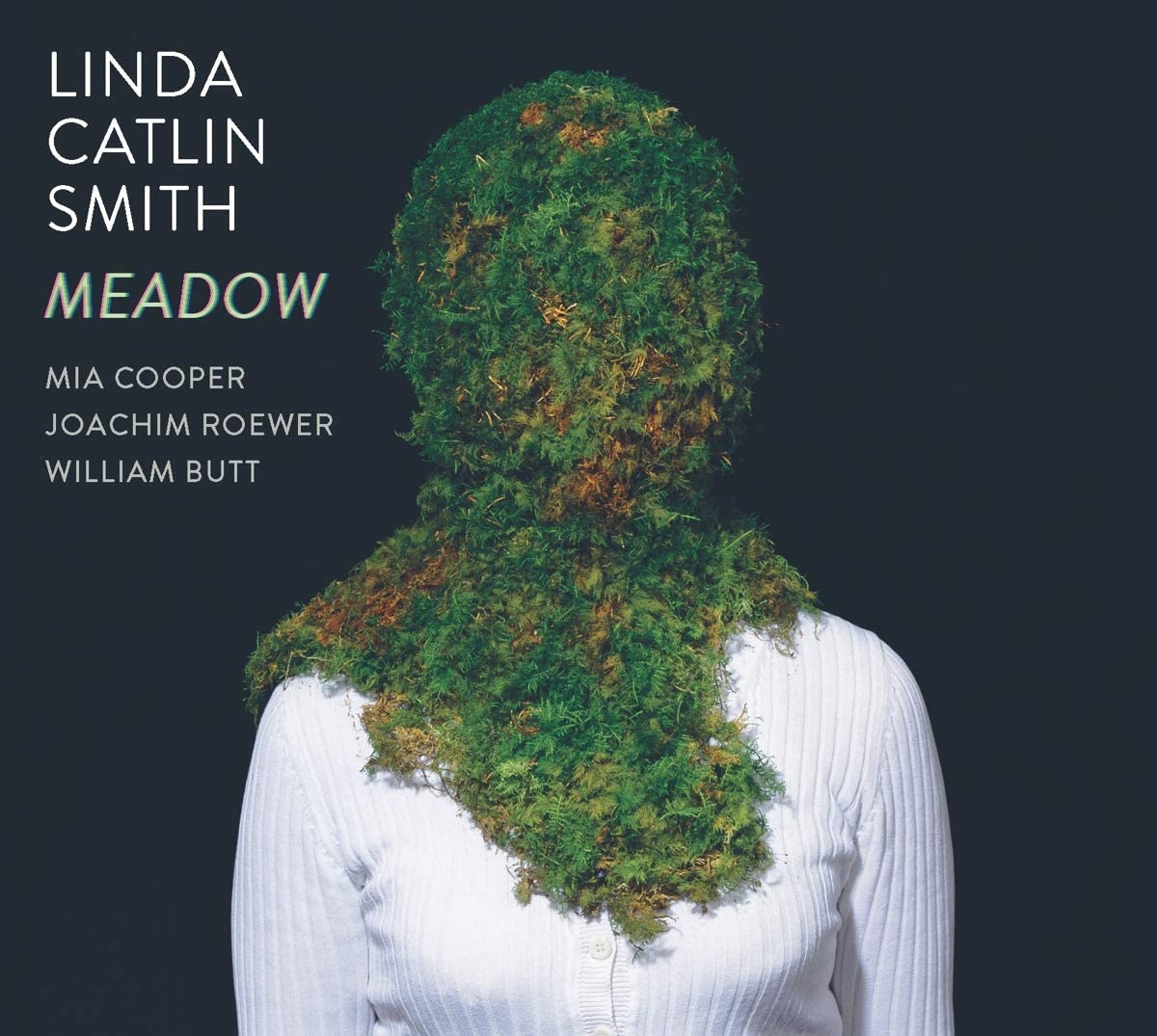 Linda Catlin Smith: Meadow (Louth Contemporary Music)
Linda Catlin Smith: Meadow (Louth Contemporary Music)
New music flourishes in the most unlikely places; Sheffield’s Another Timbre is one of the greatest experimental record labels and just a short schlep over the Pennines is Huddersfield, home of one of the world’s leading contemporary music festivals. Then there’s the Louth Contemporary Music Society in Dundalk, Ireland, whose founder Eamonn Quinn has secured visits from the likes of John Zorn, Terry Riley and Arvo Pärt. The festival has its own record label, and two recent releases have recently come my way. Linda Catlin Smith’s Meadow is a 33-minute string trio, the title explained by her description of a meadow as a superficially unspectacular garden concealing "many different types of plants and tiny flowers… it is a place of infinite variation.” Smith draws an exquisite range of colours from her three musicians, from dense chords to deliciously airy textures, soft violin harmonics soaring over the top. The music just is, unfolding according to its own rules and logic – summed up best by Smith’s own words, as “more like a patient observation than a form of self-expression… I try to keep myself out of it, and let it just be.” Magical stuff, performed with love by Mia Cooper, Joachim Roewer and William Butt.
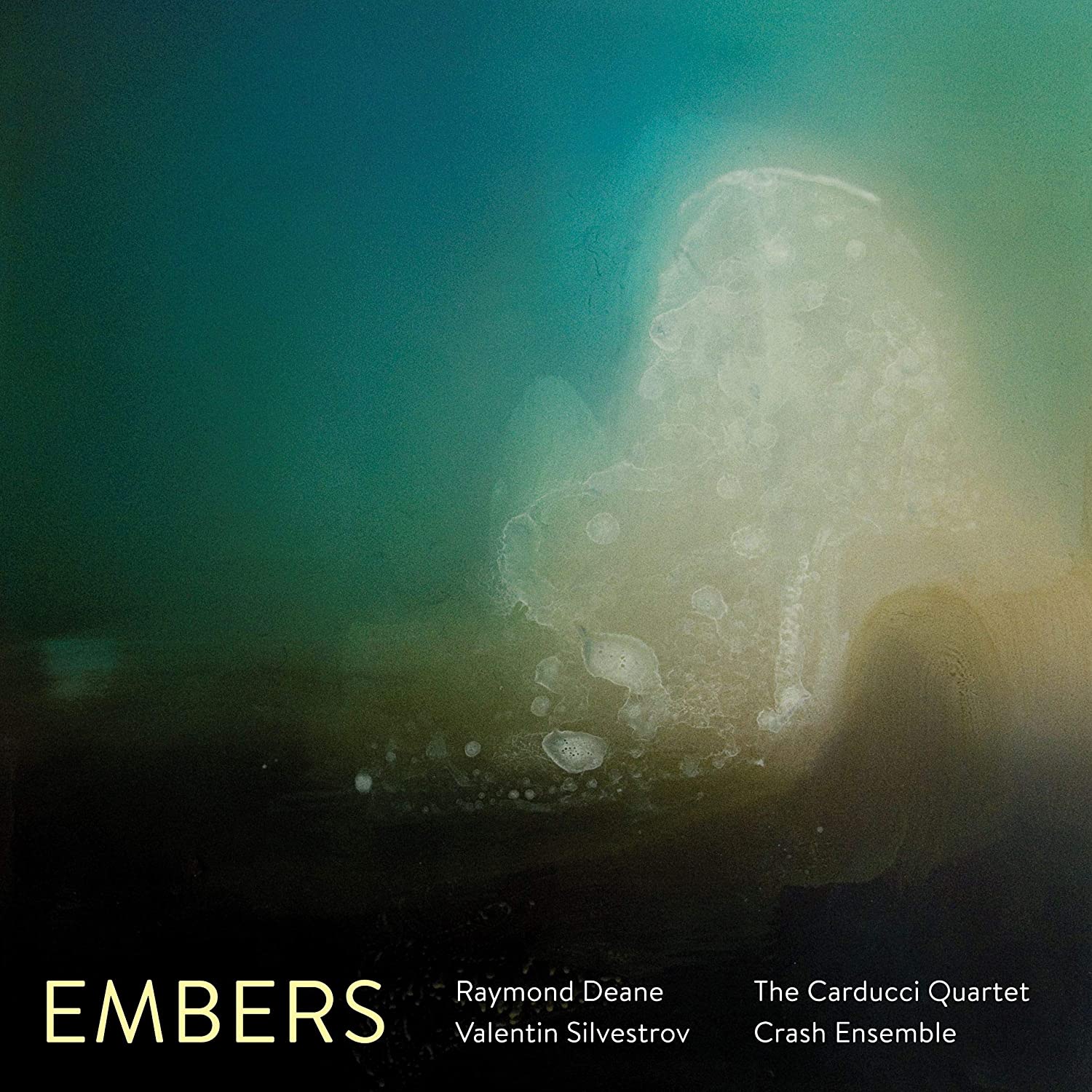 Embers contains more chamber music for strings, this time by Raymond Deane and Valentin Silvestrov. The latter’s String Quartet No. 3 is a rare commission, Silvestrov readily writing the work after meeting Quinn. As with the Smith string trio, Silvestrov’s music follows its own rules, unfolding slowly and euphoniously, the quartet’s origins occasionally signalled by a snatch of Irish folk music allusion or a squelchy cadence. The closing fade to silence is extraordinary. It’s coupled with two pieces by the Irish composer Raymond Deane. Marthiya, a string trio played here by the Crash Ensemble, is a sustained, compelling lament prompted by “the wider carnage inflicted upon the Arab and Islamic world by the West”. Embers, heard here in a string quartet version (played, along with the Silvestrov, by the Carducci Quartet), is Deane’s most performed work. The musical material occasionally teeters on the abyss before flickering back to life. Engaging and affecting, it’s a grower. Both discs are immaculately produced and designed. Next month’s festival is, inevitably, an online affair, but when lockdown eases, I’m Louthward bound.
Embers contains more chamber music for strings, this time by Raymond Deane and Valentin Silvestrov. The latter’s String Quartet No. 3 is a rare commission, Silvestrov readily writing the work after meeting Quinn. As with the Smith string trio, Silvestrov’s music follows its own rules, unfolding slowly and euphoniously, the quartet’s origins occasionally signalled by a snatch of Irish folk music allusion or a squelchy cadence. The closing fade to silence is extraordinary. It’s coupled with two pieces by the Irish composer Raymond Deane. Marthiya, a string trio played here by the Crash Ensemble, is a sustained, compelling lament prompted by “the wider carnage inflicted upon the Arab and Islamic world by the West”. Embers, heard here in a string quartet version (played, along with the Silvestrov, by the Carducci Quartet), is Deane’s most performed work. The musical material occasionally teeters on the abyss before flickering back to life. Engaging and affecting, it’s a grower. Both discs are immaculately produced and designed. Next month’s festival is, inevitably, an online affair, but when lockdown eases, I’m Louthward bound.
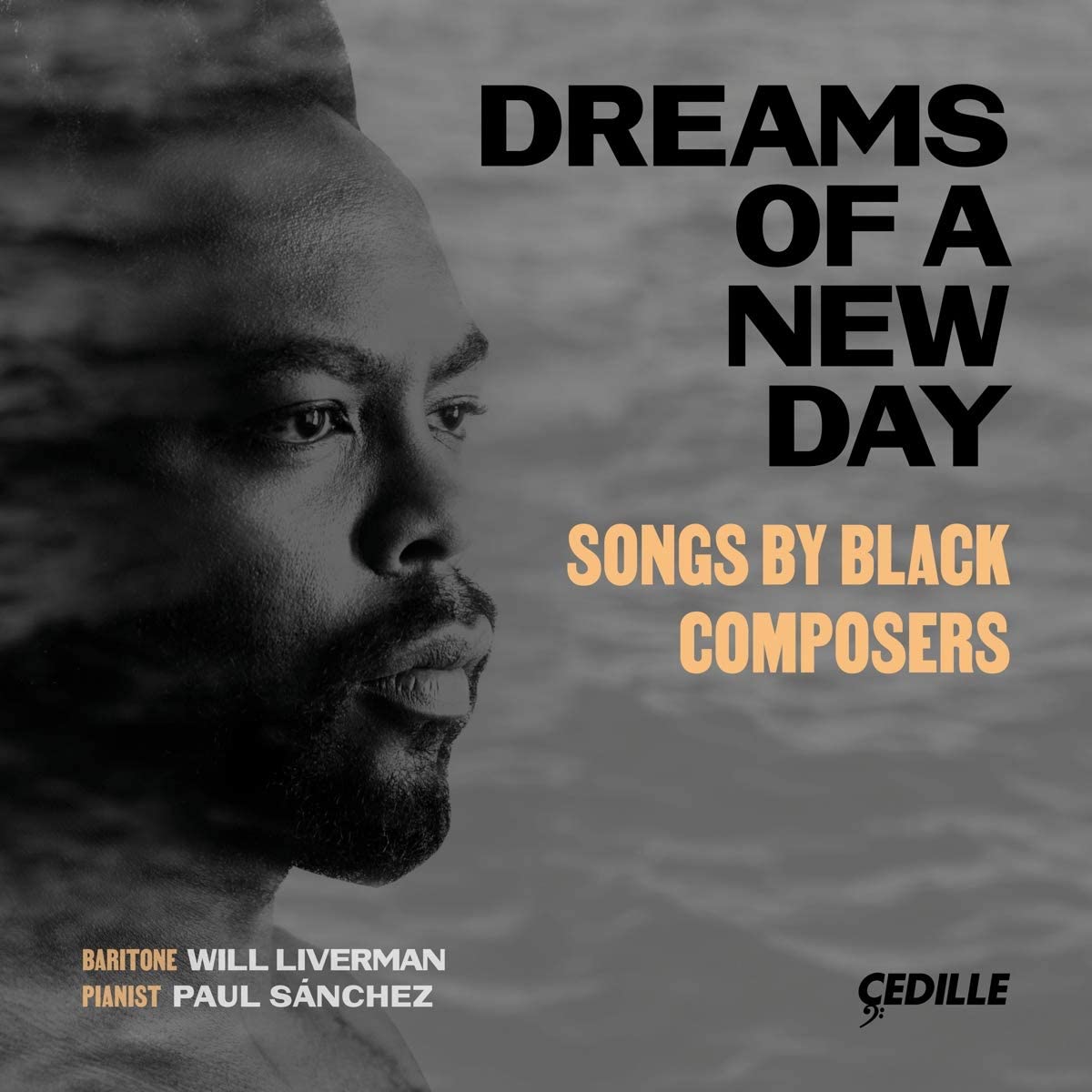 Dreams of a New Day – Songs by Black Composers Will Liverman (baritone), Paul Sánchez (piano) (Cedille)
Dreams of a New Day – Songs by Black Composers Will Liverman (baritone), Paul Sánchez (piano) (Cedille)
Baritone Will Liverman’s self-professed passion project contains some marvellous material, reminding us that “black composers wrote so much more than just spirituals!”. Of 19 numbers by African American musicians, earliest are the Five Songs of Laurence Hope by Henry Burley. He attended New York’s National Conservatory when Dvořák was its director; Dvořák admired Burley’s singing of spirituals and knowledge of American popular song, Burley reciprocating by praising the senior composer’s Czech nationalist style. Written in 1915 and setting texts by Adela Florence Nicolson, Burley’s cycle neatly fuses impressionism with the vernacular, notably in the fourth song, “Among the Fuschias.” I’d heard of Margaret Bonds through her magical Christmas cantata The Ballad of the Brown King, recently released on Avie. Her Three Dream Portraits date from 1959, each song’s text a response to the burgeoning Civil Rights movement. Bonds’ accessible, unfussy style is winning, Liverman’s direct, heartfelt delivery just what’s needed.
The second of the Two Black Churches by Shawn E Okpebholo is a standout, music of spare, quiet power, an effective contrast with the assertive opening number, Damien Sneed’s “I Dream a World”, an eloquent plea for “a world where man/No other man will scorn”. Richard Fariña’s “Birmingham Sunday” has been recorded by, among others, Joan Baez, and makes for a rousing finale, Fariña appropriating a Scottish folk tine and making it his own. Liverman sings superbly throughout, with sympathetic support from pianist Paul Sánchez. The disc is beautifully designed and engineered, with full texts included in a separate booklet.
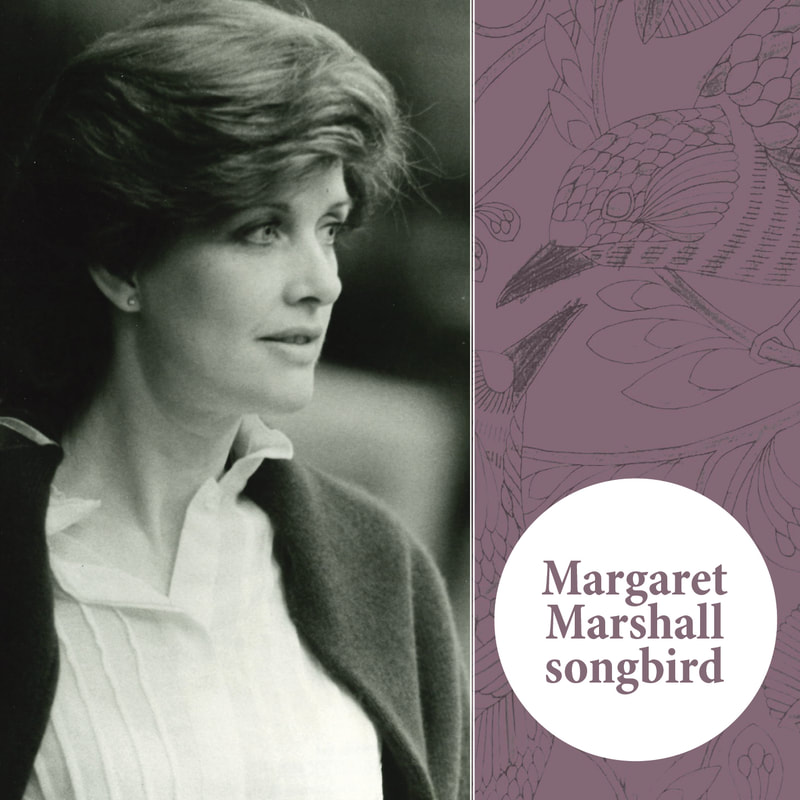 Margaret Marshall – Songbird
Margaret Marshall – Songbird
A digital-only release, Songbird is a compilation of live recordings made by the Scottish soprano Margaret Marshall in the 1970s, when she feels her voice "was at its brightest and freshest". Marshall enjoyed a long and successful career, retiring in 2005. That we can hear these performances at all is down to a series of chance encounters, the performances sourced from various German radio archives and in pristine sound. Hearing Bach's secular cantata Non sa che sia dolore played by a standard chamber orchestra feels like a guilty pleasure. I don't care if it's anachronistic, or that the solo flautist's tone is improbably rich; Marshall's sweet-toned singing works for me, and conductor and composer Hans Zender is a responsive accompanist. It's the same with Marshall's 1974 recording of Purcell's The Blessed Virgin's Expostulation with the Bavarian Radio Symphony Orchestra under Mosche Atzmon (a performance which won her first prize in the ARD International Music Competition); it's big-boned but terrific, Marshall's restraint in the closing bars deeply moving. Arias by Mozart and Handel have been exhumed, winningly sung, along with three Strauss songs taped at the Wigmore Hall in 1976, Marshall accompanied by her school friend John Fraser.
A surprise is a 1979 performance of Finzi's Dies Natalis under Guenter Kehr; we're accustomed to hearing the cantata sung by a tenor, though its troubled first recording was made by soprano Joan Cross. This is a beautiful work, and it's a delight to hear it performed so well. Kehr and Marshall shape the "Rhapsody" beautifully, and there's never any hint of shrillness in her high register. A lovely performance, and one to live with. The recordings all sound terrific, technically, but it's their musicality which makes them mandatory listening. Download and streaming links are available on Marshall's website. Hours of happy listening await you.
Explore topics
Share this article
The future of Arts Journalism
You can stop theartsdesk.com closing!
We urgently need financing to survive. Our fundraising drive has thus far raised £49,000 but we need to reach £100,000 or we will be forced to close. Please contribute here: https://gofund.me/c3f6033d
And if you can forward this information to anyone who might assist, we’d be grateful.

Subscribe to theartsdesk.com
Thank you for continuing to read our work on theartsdesk.com. For unlimited access to every article in its entirety, including our archive of more than 15,000 pieces, we're asking for £5 per month or £40 per year. We feel it's a very good deal, and hope you do too.
To take a subscription now simply click here.
And if you're looking for that extra gift for a friend or family member, why not treat them to a theartsdesk.com gift subscription?
more Classical music
 Classical CDs: Sleigh rides, pancakes and cigars
Two big boxes, plus new music for brass and a pair of clarinet concertos
Classical CDs: Sleigh rides, pancakes and cigars
Two big boxes, plus new music for brass and a pair of clarinet concertos
 Waley-Cohen, Manchester Camerata, Pether, Whitworth Art Gallery, Manchester review - premiere of no ordinary violin concerto
Images of maternal care inspired by Hepworth and played in a gallery setting
Waley-Cohen, Manchester Camerata, Pether, Whitworth Art Gallery, Manchester review - premiere of no ordinary violin concerto
Images of maternal care inspired by Hepworth and played in a gallery setting
 BBC Proms: Barruk, Norwegian Chamber Orchestra, Kuusisto review - vague incantations, precise laments
First-half mix of Sámi songs and string things falters, but Shostakovich scours the soul
BBC Proms: Barruk, Norwegian Chamber Orchestra, Kuusisto review - vague incantations, precise laments
First-half mix of Sámi songs and string things falters, but Shostakovich scours the soul
 BBC Proms: Alexander’s Feast, Irish Baroque Orchestra, Whelan review - rapturous Handel fills the space
Pure joy, with a touch of introspection, from a great ensemble and three superb soloists
BBC Proms: Alexander’s Feast, Irish Baroque Orchestra, Whelan review - rapturous Handel fills the space
Pure joy, with a touch of introspection, from a great ensemble and three superb soloists
 BBC Proms: Moore, LSO, Bancroft review - the freshness of morning wind and brass
English concert band music...and an outlier
BBC Proms: Moore, LSO, Bancroft review - the freshness of morning wind and brass
English concert band music...and an outlier
 Willis-Sørensen, Ukrainian Freedom Orchestra, Wilson, Cadogan Hall review - romantic resilience
Passion, and polish, from Kyiv's musical warriors
Willis-Sørensen, Ukrainian Freedom Orchestra, Wilson, Cadogan Hall review - romantic resilience
Passion, and polish, from Kyiv's musical warriors
 BBC Proms: Faust, Gewandhausorchester Leipzig, Nelsons review - grace, then grandeur
A great fiddler lightens a dense orchestral palette
BBC Proms: Faust, Gewandhausorchester Leipzig, Nelsons review - grace, then grandeur
A great fiddler lightens a dense orchestral palette
 BBC Proms: Jansen, Royal Concertgebouw Orchestra, Mäkelä review - confirming a phenomenon
Second Prom of a great orchestra and chief conductor in waiting never puts a foot wrong
BBC Proms: Jansen, Royal Concertgebouw Orchestra, Mäkelä review - confirming a phenomenon
Second Prom of a great orchestra and chief conductor in waiting never puts a foot wrong
 BBC Proms: Royal Concertgebouw Orchestra, Mäkelä review - defiantly introverted Mahler 5 gives food for thought
Chief Conductor in Waiting has supple, nuanced chemistry with a great orchestra
BBC Proms: Royal Concertgebouw Orchestra, Mäkelä review - defiantly introverted Mahler 5 gives food for thought
Chief Conductor in Waiting has supple, nuanced chemistry with a great orchestra
 Dunedin Consort, Butt / D’Angelo, Muñoz, Edinburgh International Festival 2025 review - tedious Handel, directionless song recital
Ho-hum 'comic' cantata, and a song recital needing more than a beautiful voice
Dunedin Consort, Butt / D’Angelo, Muñoz, Edinburgh International Festival 2025 review - tedious Handel, directionless song recital
Ho-hum 'comic' cantata, and a song recital needing more than a beautiful voice
 Classical CDs: Dungeons, microtones and psychic distress
This year's big anniversary celebrated with a pair of boxes, plus clarinets, pianos and sacred music
Classical CDs: Dungeons, microtones and psychic distress
This year's big anniversary celebrated with a pair of boxes, plus clarinets, pianos and sacred music
 BBC Proms: Liu, Philharmonia, Rouvali review - fine-tuned Tchaikovsky epic
Sounds perfectly finessed in a colourful cornucopia
BBC Proms: Liu, Philharmonia, Rouvali review - fine-tuned Tchaikovsky epic
Sounds perfectly finessed in a colourful cornucopia

Add comment